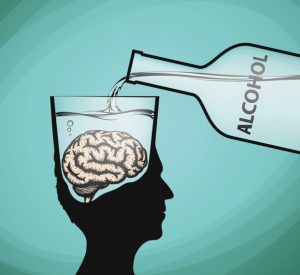By Steven Stein, MD – Board-certified Psychiatrist


Alcohol’s Physical Effects: Physically, alcohol can damage nearly every organ in the body. Prolonged excessive drinking can lead to fatty liver, alcoholic hepatitis, liver cirrhosis (a potentially fatal condition where liver tissue is replaced by scar tissue), and liver cancer. Additionally, alcohol weakens the immune system, making the body more susceptible to infections. Our heart health can also be compromised, with alcohol contributing to high blood pressure, irregular heartbeats, and an increased risk of stroke.
What is Alcohol Use Disorder:
Alcohol Use Disorder (AUD) is a chronic and progressive disease characterized by an inability to control alcohol intake, increased tolerance, and dependence leading to withdrawal symptoms. AUD can devastate lives, affecting not only the individual but also their loved ones. Alcohol withdrawal is one of only a few drug withdrawals that can be a medical emergency and even life threatening. Because of this, the assessment of one’s severity of use and need for additional services, and possibly medication management should be completed only by a trained professional.
Alcohol’s Impact on the Brain and Mental Health: Alcohol abuse also wreaks havoc on mental health. One of the most apparent ways that AUD affects mental health is through its impact on the brain’s chemistry. Alcohol is a central nervous system depressant, meaning it slows down brain activity. Initially, this might result in feelings of euphoria and relaxation, but prolonged and excessive alcohol use can disrupt the delicate balance of neurotransmitters and hormones in the brain. This imbalance can lead to mood disturbances such as depression and anxiety. Alcohol can lead to deepening feelings of sadness, hopelessness, and even suicidal thoughts. Anxiety, too, can intensify as the brain’s ability to manage stress becomes compromised. The interplay between alcohol and mental health creates a ripple effect, as individuals might turn to alcohol to cope with emotional pain, only to find themselves sinking deeper into distress. Additionally, we can develop a tolerance to alcohol’s effects causing us to drink more which contributes to the development of a physical dependence.
Depression often coexists with AUD, creating a vicious cycle. Individuals with AUD may initially turn to alcohol as a means of coping with feelings of sadness or despair. However, alcohol’s depressive effects can exacerbate these emotions over time. Anxiety is another common mental health issue intertwined with AUD. While alcohol might temporarily alleviate feelings of anxiety, it actually heightens these emotions in the long run. Chronic alcohol use disrupts the brain’s ability to regulate stress, making individuals more susceptible to experiencing heightened anxiety and panic attacks.
The relationship between AUD and mental health is not unidirectional. Just as alcohol abuse can worsen mental health conditions, preexisting mental health conditions can also increase the risk of developing AUD. Individuals with conditions like depression, anxiety, or post-traumatic stress disorder (PTSD) might turn to alcohol as a form of self-medication, attempting to alleviate their distressing symptoms. However, this self-medication often results in an escalating cycle of alcohol use and worsened mental health symptoms and outcomes.
Treatment for Alcohol Use Disorder is not a one size fits all approach. Breaking the cycle requires a holistic approach that addresses both physical and mental health components, combining therapies, support groups, and possibly medication. A comprehensive assessment should be completed by a medical profession trained in identifying the disorder and the subsequent management approach under medical supervision to ensure the most comfort and best outcome. Not everyone with alcohol use disorder is required to be hospitalized or complete inpatient residential rehabilitation; some can be treated as an outpatient with therapy, support groups and pharmacological interventions. That said, some do require a more intensive approach including detoxification in a facility or hospital for their own safety. An evaluation by a professional is also key to identify and treat any underlying coexisting mood disorder such as depression, anxiety or PTSD.
If you believe you or a loved one may be experiencing some level of alcohol abuse that is impacting your mental, social or physical health please know that you are not alone. Fortunately, there are steps you can take to start feeling better and living life the way you want to live it on your terms. If you would like more information on how Tidewater Total Mind Care can help, feel free to contact us today at 941-202-1999.
(941) 202-1999
www.tidewatertotalmindcare.com
3333 Clark Rd, Ste 100, Sarasota, FL 34231
 Southwest Florida's Health and Wellness Magazine Health and Wellness Articles
Southwest Florida's Health and Wellness Magazine Health and Wellness Articles

